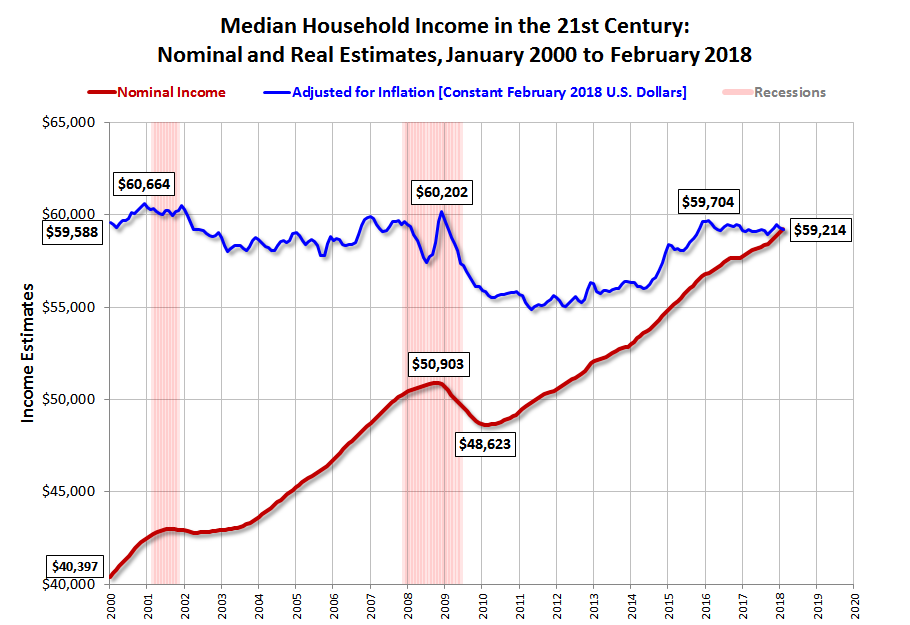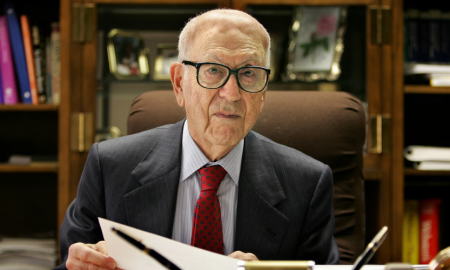
The Fight Against Poverty Has Been EXTREMELY Successful, U.S. Government Claims

The efforts of the U.S government are most times criticized more than the anti-poverty scheme. They are termed as vain and also derided as freebies to those who do not deserve it. However, a new paper has refuted these claims by revealing that the anti-poverty schemes of the governments are always successful, especially when it comes to social security.

Bruce D. Meyer And Derek WU Speaking On The Six Programs
Bruce D. Meyer and Derek Wu of the University of Chicago which happen to be the authors of this new paper, employed the managerial data gotten from six key programs to show that out of the six, five programs successfully stepdown grave poverty, and this is the revenue which is 50% lower than the federal poverty line. The sixth program has an effect on the working lower-class citizens.
Benefits of The Anti-Poverty Schemes
These five programs which stepdown grave poverty as listed as follows: Social security, Supplemental Security Income, Temporary Assistance for Needy Families (TANF), also notably referred to as welfare, housing assistance and lastly food stamps (SNAP). The sixth program happens to be the Earned Income Tax Credit; this aids several families that make around 150% of the poverty line. Shedding light on the value of the poverty line, the income is around $25,100 for a family of four.
Treating each case individually, Weber and Wu discovered that the outcome of each program has been brought to nothing material by conventional methods of measurements. The Census Bureau surveys gave the previous evaluations, also adding that not underreports have their gains.
The authors further stated that the consequences of TANF and food stamps are undervalued between one-third and a half, Social security impact is also undervalued by 44%. This research spanned from 2008 all through to 2013, which happens to be the Great Recession.
Meyer further affirmed that these programs have greatly reduced poverty. The programs with the exemption of the EITC, are likely to experience budget cuts amongst others. Poverty rate has been barely reduced for close to 50 years now even though expenses running to trillions of dollars in public funds.
On the topic, Ronald Reagan threw quite a banter, supporting the Republicans, during the 1988 address read on the state of the union. He stated that the war against poverty has been won. The Republicans have also used the opportunity to back program cuts, and pave way for private and charitable establishments, and also cut states’ allowances.

Median Household Income from 2000 to 2018
How Reduction In Poverty Affects The Aged
Among the aged, Social security has reduced poverty by 75%, other programs also follow suit in this reduction as researched by Meyer and Wu. The paper, however, does not plainly focus on the effect of the poverty rate by the program. Meyer has however compared the effect in other research work.
James X. Sullivan of Notre Dame concluded in a 2012 paper that the tax rate which was gotten by households in need which included the EITC, housing benefits and amongst others, were not summed up by the official poverty rate. They are currently an essential part of anti-poverty spending. Meyer and Sullivan opined that the concentration of household income instead of consumption was a better symbol of the standard of living of a household.
The measurement showed that poverty rate is reduced by 4.4% from 1960 to 2010, stopping at 15.1%. Putting measurement flaws in mind, Meyer and Sullivan resolved that the percentage of poverty in America has been reduced by 26%, to around 4.5%.
Merits of The Social Security Scheme
Meyer affirmed that some quarters are blind to the reduction in poverty, as it reduced due to two major factors: addition of transfer programs and the growth of the economy. These results by Meyer and Wu reveal what is involved when it comes to the federal safety net, refuting the fact that the aged are among the economically stable Americans, their economic standing, however, relies on Social Security.

Meyer stated that many of those who get low incomes are retired and this is gotten from Social Security, removing it could spell doom for them, increasing the number of aged people who live below the poverty line
He also stated that most of the programs against poverty are not planned well, and there is room for improvement, as the poor would even prefer to work rather than receive payment by the state. Work support or provision of public service employment would be a great move, they claim.
More in Advisor
-
`
Intel Invests in Nvidia, but Ratings Remain Unchanged
Intel’s stock jumped more than 30% after news broke that Nvidia poured $5 billion into the company. The rally sparked renewed...
October 5, 2025 -
`
Homeownership vs. Real Estate Investment: What’s Better?
Homeownership has long been seen as the American dream. But today, more people are asking: Is it really the smartest way...
October 3, 2025 -
`
Why the Armani Fashion Empire Is Set for an IPO
Giorgio Armani, one of the most iconic names in global fashion, left behind a detailed plan for the future of his...
September 27, 2025 -
`
Why Do Pokémon Cards Outperform the S&P 500 As an Investment?
Pokémon cards have outperformed the stock market by a mile. Since 2004, they have delivered a staggering 3,821% return, according to...
September 27, 2025 -
`
America’s Billionaires Get Older—Millennials Wait for Wealth Transfer
Many of today’s billionaires don’t match the youthful tech-founder image often portrayed. While names like Elon Musk, Sam Altman, and Mark...
September 21, 2025 -
`
Can President Trump Legally Fire Fed Governor Lisa Cook?
Lisa Cook is right in the middle of one of the most explosive legal battles in Washington. President Trump wants her...
September 20, 2025 -
`
Jeff Bezos’ Advice for Millennials Who Want Financial Success
Millennials today have grown up in a world where instant access to products and services is the norm. From two-day deliveries...
September 13, 2025 -
`
Maison Margiela’s First-Ever Celebrity Campaign Stars Miley Cyrus
Miley Cyrus just changed the rules again. In August 2025, she became the first celebrity ambassador in Maison Margiela’s 37-year history....
September 12, 2025 -
`
Should You Rely on AI for Financial Advice? Here’s What Financial Experts Say
AI is everywhere right now, and yes, that includes your wallet. From budgeting to retirement planning, tools like ChatGPT, Google Gemini,...
September 6, 2025















You must be logged in to post a comment Login